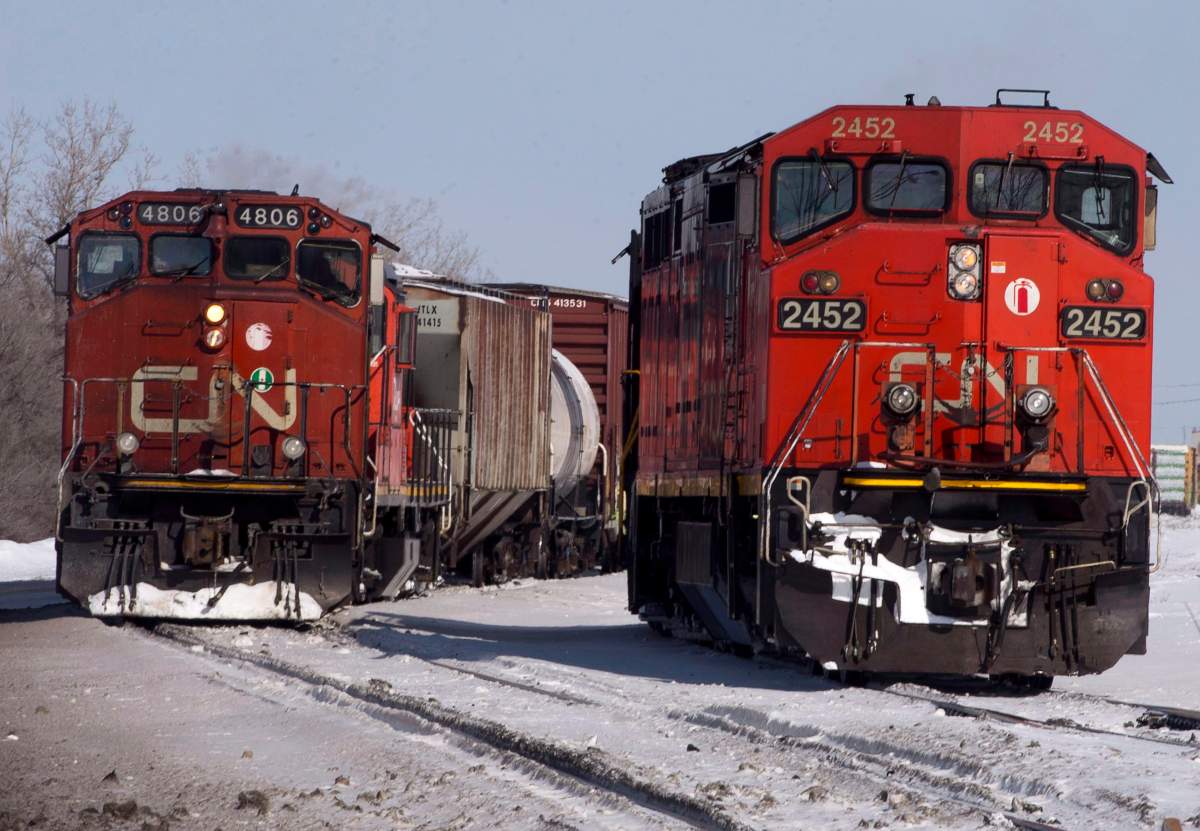Canadian National Railway Co. says service is back to normal less than a month after a strike brought it to a screeching halt, but big grain backlogs remain a concern for Western farmers.

“Back to normal shipping won’t clear up the backlog of over 10,000 cars that weren’t shipped during the strike,” said Todd Lewis, president of the Agricultural Producers Association of Saskatchewan.
“Anecdotally we’ve heard of contracts from October and November that haven’t been shipped,” he said.
“That costs farmers money. They don’t get paid until they’re actually able to deliver the product.”
The eight day-work stoppage by 3,200 conductors and yard workers last month reduced CN to 10 per cent operating capacity and stopped it from taking new orders.
By the second week of December, however, Canada’s largest railway had ramped grain shipment back up to peak levels, accepting nearly all orders this month and encouraging more, the company said.

Get daily National news
“I’m pleased to announce that our focused and methodical recovery plan is working and that the performance of our movements has recovered to normal ranges,” chief executive JJ Ruest said in a statement Thursday.
“We will remain focused on safety as we continue to clear the backlog caused by the work stoppage.”
Contract extension penalties and demurrage fees — issued by a shipping line when freight exceeds the time allotted at a terminal — remain a threat for farmers and grain elevators trying to clear out brimming barns and silos.
The $130-million backlog of Prairie grain may lose much of its value if trains can’t ship it to port before spring, when prices typically drop amid heightened global supply, said Wade Sobkowich, head of the Western Grain Elevator Association.
The shipment delay on corn and canola — which prevented further crop harvests for lack of storage space — added to the woes of a late harvest and big wheat crop that had already put pressure on the rail network.
Resource industries are facing less dire backlogs.
Canadian Propane Association CEO Nathalie St-Pierre said fuel levels in Central and Eastern Canada, where propane shortages loomed during the strike, are back up to 70 per cent, but called for a more efficient return to full capacity to safeguard against problems during the cold winter months.
“Things are getting better. It’s slowly coming back to some of the provinces that are most affected,” St-Pierre said.
Various industries impacted by the strike are hovering at between 70 per and 80 per cent capacity, with the remaining 20 per cent to be filled in the next two weeks, according to Fertilizer Canada.


Comments
Want to discuss? Please read our Commenting Policy first.